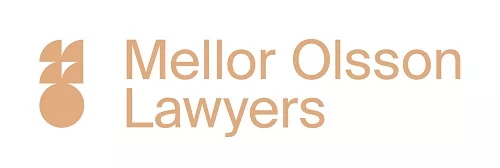- with Senior Company Executives, HR and Finance and Tax Executives
- with readers working within the Accounting & Consultancy, Basic Industries and Business & Consumer Services industries
In June 2023, RevenueSA released a Revenue Ruling to explain its position with respect to the application of payroll tax to payments made to contractors engaged by medical centres throughout South Australia. This issue is topical following the outcome of recent interstate payroll tax cases (including the 2023 Court of Appeal matter of Thomas and Naaz Pty Ltd v Chief Commissioner of State Revenue, in which the entity engaging medical practitioners as contractors was found to have been liable for unpaid payroll tax and was ordered to pay five years' worth of payroll tax plus interest and penalties.
The payroll legislation from state to state is largely identical and these recent developments in interstate courts are directly relevant to South Australian medical practices. Practices that have engaged medical practitioners as contractors may find that they are actually liable for payroll tax under the Payroll Tax Act 2009 (Act) and are now liable for up to five years' worth of payroll tax together with interest and penalties.
In the face of this significant potential impact on South Australian medical practices, RevenueSA has announced an amnesty during which a medical practice can register for payroll tax. Registration under the amnesty prevents a retrospective liability being levied against a practice.
Payroll tax in South Australia
Payroll tax applies when the total wages expense equals or exceeds $1.5million in a financial year. It is payable on wages paid or payable and includes payments made to contractors under certain contracts (called "relevant contracts" in the Act). In determining whether a contract is a relevant contract, RevenueSA will consider all the terms of the contract and whether they indicate that the practitioner is truly engaged as an autonomous and independent contactor or whether the terms of the contract amount to a de facto employment contract. Variables that are considered include:
- the flow of funds between the parties;
- the level of independence from the practice enjoyed by the practitioner;
- whether the medical practice or the practitioner attracts the clients;
- whether the practitioner does his or her own advertising; and
- a range of other indicators of either the independence or control of the contractor.
Further, it may be that although the contractor relationship is truly independent, the documented agreement between the practice and the practitioner cause the contractor's fees to be deemed as wages for the purposes of the Act.
The amnesty
RevenueSA have announced that if a medical practice of general practitioners:
- registers as an employer for the purposes of payroll tax prior to 30 September 2023; and
- complies with RevenueSA's request for information from the practice,
then an amnesty will apply to that practice for any failure to pay payroll tax in the period up to 30 June 2024. RevenueSA have expressly stated that it will not be providing any extensions to the amnesty deadline. It should be noted that the amnesty only applies to payments made to contracted general practitioners (and not, for example, medical specialists).
After 30 September 2023, RevenueSA will be reviewing the applications from each practice and will advise the practice whether payroll tax is payable.
Once a practice has registered for the amnesty, RevenueSA will review the practice's employment and contracting arrangements and will advise the practice whether RevenueSA believes that the payroll tax will apply.
If payroll tax is payable, it will apply from 1 July 2024.
What should medical practices do now?
If the amnesty applies to your medical practice and the gross payments made in wages and to contractors is near or exceeds $1.5 million, you should immediately consider an application under the amnesty or seek legal advice with respect to your circumstances.
The structure of the contractual arrangements between the parties was determinative in the recent case law for the application of payroll tax to the medical practices. The way in which a practice structures the engagement of a practitioner, including the respective responsibilities of the parties and the flow of funds between the parties will determine whether the practitioner is an independent contractor or engaged pursuant to a "relevant contact" under the meaning of the Act. Proper legal advice, including a review of the current contract structure and arrangements, can help you ensure that your documented arrangements and payment structure supports the intention of the parties as to the nature of the engagement.
The content of this article is intended to provide a general guide to the subject matter. Specialist advice should be sought about your specific circumstances.


